Real lives: One of the few surviving Windrush passengers on his journey from the Caribbean to Britain
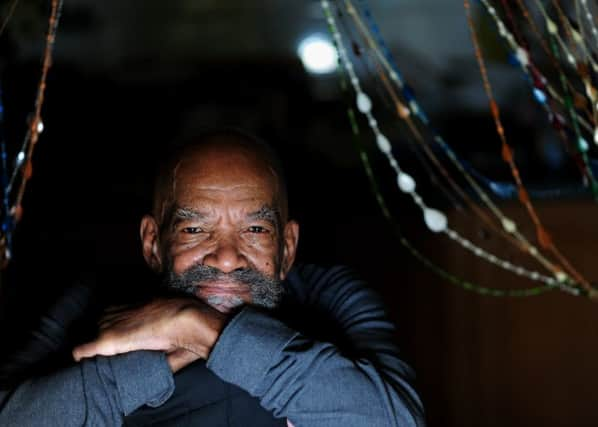

Leaving behind your home, family and friends to head into the unknown to start a new life requires resourcefulness and an independent spirit. Luckily, Alford Gardner has plenty of both. Now 92, Alford, who was born in Jamaica in 1926, was in his early 20s when he boarded the SS Empire Windrush in 1948, bound for Britain. He was one of 492 people on board, the first large group of post-war immigrants from the Caribbean to come to the UK.
This year marks 70 years since the arrival of the Windrush and Leeds-based Phoenix Dance Theatre will be presenting a new piece to commemorate the anniversary. Windrush: Movement of the People receives its world premiere at the West Yorkshire Playhouse next week and it tells the story of those early settlers, charting both the good times and the struggles, celebrating their contribution to British culture and society.
Advertisement
Hide AdAdvertisement
Hide AdFor Alford, however, it wasn’t the first time he had been to Britain. Despite his youth he had already served as an engineer and motor mechanic in the RAF during the Second World War, having joined in 1943 at the age of just 17. The following year he came over to England as part of a cohort of two thousand men from the Caribbean, recruited for ground crew duties.


He did what he calls his “square bashing” in Filey at RAF Hunmanby Moor, housed in what was later to become a Butlin’s holiday camp, went on to complete his initial training at Wheaton Aston in Staffordshire and was then posted to Moreton-in-the-Marsh in Gloucestershire, returning to Jamaica in 1946.
“When I got home we were told we could do a vocational course with the RAF,” he says. “They had courses in mechanics and engineering, welding, all sorts of different trades. It was a six-month course and I came to Leeds to do mine.”
The winter of 1946/47 is famously one of the most severe that Britain has ever experienced and Alford arrived right in the middle of it, in January 1947.
Advertisement
Hide AdAdvertisement
Hide Ad“That was a winter,” he says laughing. “There was so much snow you had to dig yourself out of the door every morning. It was a very bleak winter. The first couple of weeks with all that snow I didn’t like it at all, but as things went on it got better.”
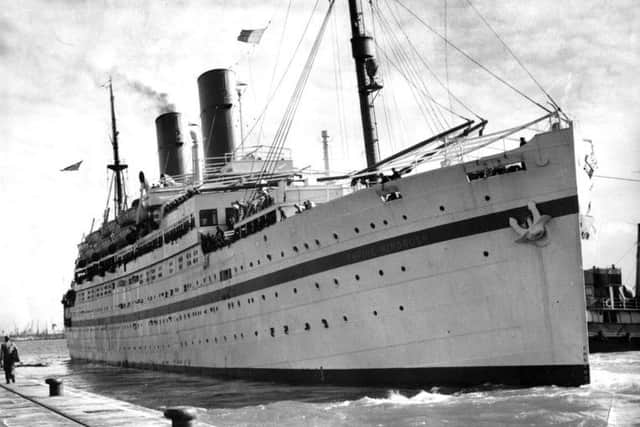

Over the course of six months Alford stayed in three different lodgings and finally settled in Greenbanks Hostel in Horsforth. When it was time to return home to Jamaica, he knew he would be back.
“That was always the plan,” he says. “I was determined to come back to England. For a lot of people there was nothing back home – in Jamaica at that time there were very few opportunities, there were no jobs going at all. A lot of the lads were down and out; I had my parents to help me but a lot of the lads, their parents had died.”
He heard that a ship was due to set sail for England – newspaper advertisements offered cheap transport for anyone wishing to go and work in the UK – and Alford knew he wanted to be on it. His father gave him £50 – the fare was £28 – and he and his older brother boarded the Windrush in Kingston.
Advertisement
Hide AdAdvertisement
Hide Ad“We were at sea for a few weeks and we had a good time on the journey,” he says. “We stopped off in Havana for two days and then we went on to Mexico and then Bermuda. We were there for about four or five days and on the last night in Bermuda we had a big dance; that was beautiful.
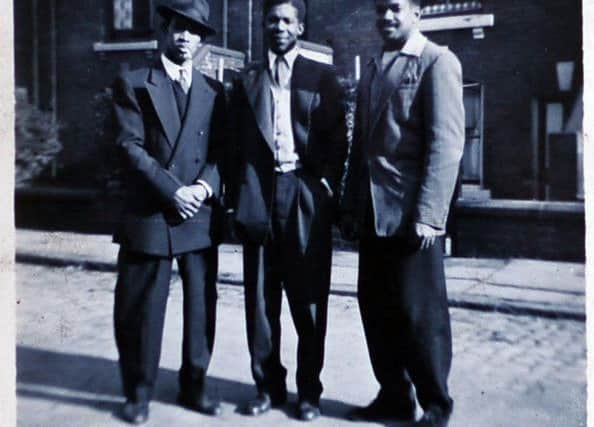

“There were lads from Jamaica and Trinidad and Barbados and the majority of them were ex-RAF. There were also a few women who were expecting to come and train as nurses. We didn’t really have much contact with the women. We were below decks and they were in a different part of the ship, so we didn’t really see them – the only time was when we stopped at Bermuda. Then we arrived at Tilbury. Our plan was always to come back up to Leeds; the RAF recruiters were begging us to join them again but we had decided we weren’t going to.”
The passengers arrived in Britain with high hopes, anticipating good employment prospects and a bright future in a new country but the reality was more problematic, as the Phoenix dance piece depicts.
“We know people were excited to come to the UK on the promise of work and a better life, but we also know it was not the case for all,” says Sharon Watson, artistic director of Phoenix and choreographer of Windrush: Movement of the People.
Advertisement
Hide AdAdvertisement
Hide Ad“Britain was recovering from the war and needed help to rebuild the country, but the stories they told were of a bittersweet experience.”
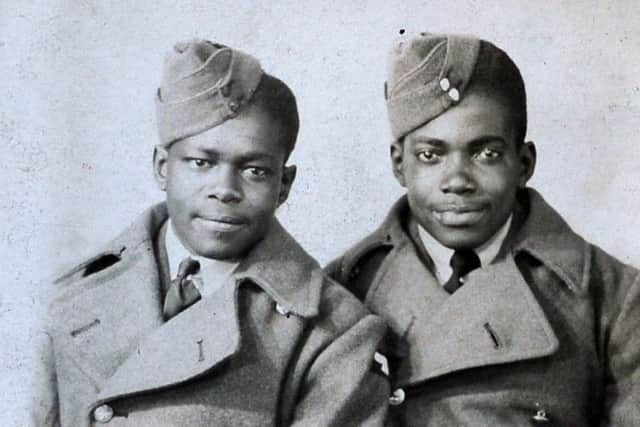

Alford, like many others, faced racism, exclusion, prejudice and discrimination. Having returned to Leeds, where he still lives, he says finding accommodation was at first “terrible”. And initially getting a job wasn’t easy either.
“I would go to the Labour Exchange and the moment I walked through the door this man would say, ‘Sorry son, there is nothing for you’,” he says. He kept going back, to be met with the same response every time, but his tenacity paid off when one day there was someone in the office who was hiring.
“He asked me what kind of work I was looking for. I told him I was a mechanic and he asked me if I could strip an engine. Then he said, ‘When could you start work?’ and I said, ‘Right now’ and I also told him that I knew a lot of lads who were looking for work. In the end, four of us got jobs just through me meeting that man.”
Advertisement
Hide AdAdvertisement
Hide AdIt was the first of many skilled jobs that Alford took on, using his mechanical engineering skills.
Outside of work, he was keen to establish a cricket team. “One of the first things I said when we got here was ‘we must have a cricket team’,” he says. “Within a few weeks we got four of us and then another four and we gradually built up a team and started playing matches.”
It was the first Caribbean Cricket Club set up in the UK and is still going strong from its premises on Scott Hall Road in Chapeltown. Once settled into employment, Alford and a group of four friends bought a house together. A few years later he met a young Yorkshirewoman at a dance – they fell in love, married, moved to Headingley and together they had eight children.
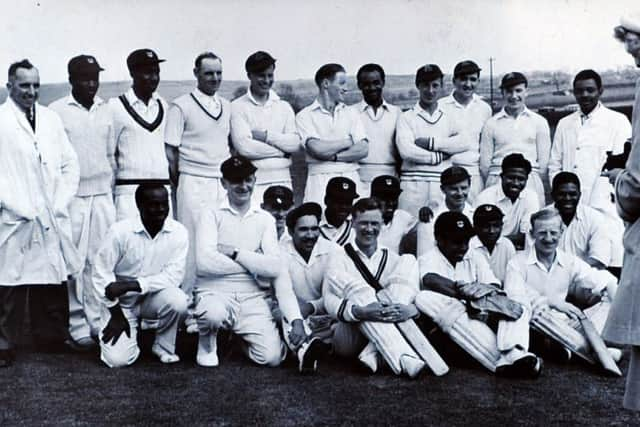

“Everything was fine once I had my house and started my family,” he says. “And I always had work.”
Advertisement
Hide AdAdvertisement
Hide AdToday Alford lives in Bramley, with his children all nearby. He is still fit and active – his energy levels would put some people half his age to shame – and he loves music, playing bingo, cooking, gardening and travelling every year to visit relatives in Jamaica, America and Canada.
Looking back 70 years on, he has no regrets about making that life-changing journey on the Windrush. “It was a brilliant decision and the right decision for me,” he says. “I have lived a very happy life – I’m still living a happy life – I’ve raised a wonderful family and Leeds is a great place to be.
“To be quite honest, when I was sent up here for the RAF vocational course people told me, ‘Oh you don’t want to go to Leeds’ but when I got here I found it was completely different to what I’d been told, I liked it straight away.”
Windrush: Movement of the People runs at West Yorkshire Playhouse in Leeds from February 7-10, wyp.org.uk. It will then go on tour, stopping off at Cast Doncaster on March 7, www.castindoncaster.com